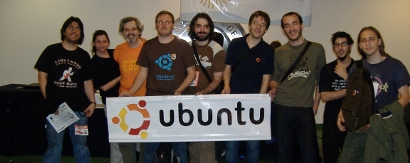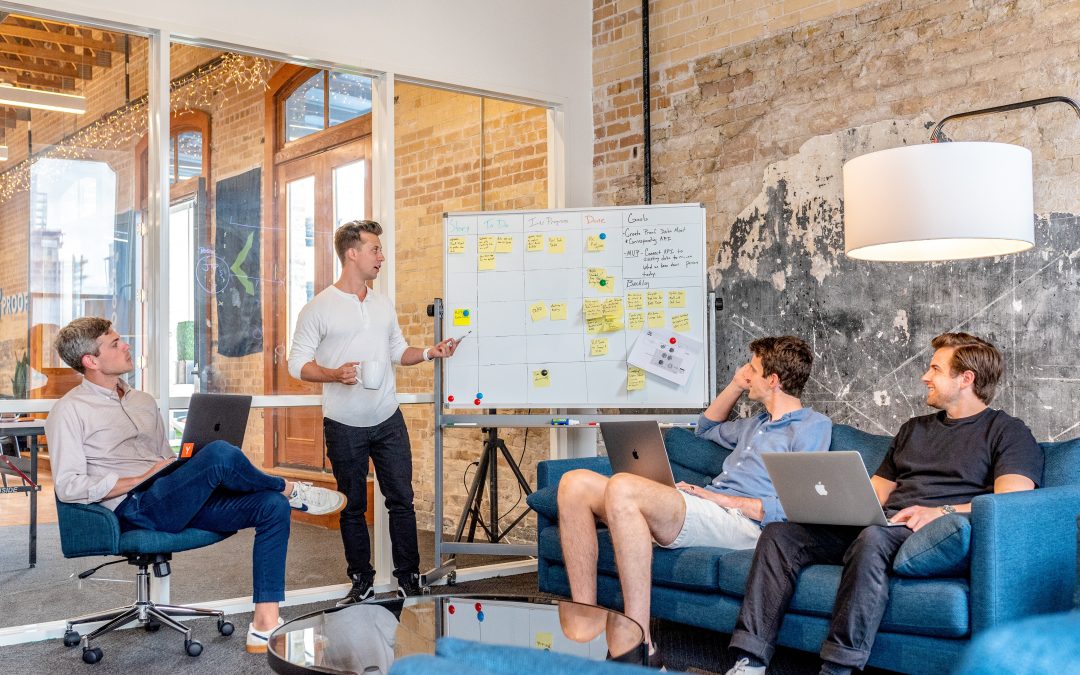
The Unknown Life Of Józef
I just want to share with you all a little story that is both sad yet inspiring at the same time.

Have any of you heard of Józef Stawinoga?
No? Thought not.
On the Wolverhampton ring road there used to be a tent erected on a grass verge between two lanes. Although few knew anything about him, the guy in the tent wandered the town with a long beard and dirty coat, and was often seen sweeping outside his tent with a broom. He spoke only a few words of English and responded to ‘Fred’. When I first moved there I was always curious about him. He was always placid, never causing trouble and never pestering people.
It turned out that ‘Fred’ was actually Józef. He moved to the UK in the 1940s to lead a fairly normal life, working at a local steelworks. Although his life is still largely a mystery, he is thought to have been involved in the Soviet invasion of Poland in 1939 and was held as a prisoner by the Russians. His evidently terrible experiences in World War II gave him serious problems with claustrophobia, and the only place he felt safe was on the grass verge of the ring road. No-one knows quite what happened, but he basically disconnected himself from society. He became a tramp, and a fairly common sight in the town.
The council were surprisingly tolerant. In fact, they built replacement tents and at one point it encompassed “*an operation involving the army, the police, social services and environmental health*”. At the time a spokesperson explained why they were so accepting of Józef’s lifestyle:
> “Although this is not an ideal situation it has been accepted as the best option for him, taking into account his personal history and the fact that he can be visited daily by the council’s meals on wheels service.”
Every time I drove on the ring road I would look out at his tent. At night I would see a light flickering inside, knowing that this curious man was in there, shrouded in mystery.
I was not the only one who was curious. Józef became more and more a local celebrity. He was the focus of a Facebook group with over 4000 members. He was even seen as a holy man by many members of the local Asian community. Several would regularly pay their respects to him. One such example included a Sikh woman who travelled 6 miles every morning for 13 years to leave a flask of hot tea and a sandwich outside his tent. Its sad to think that he never had any idea of just how many people cared about him.
Just over a year ago he died at the ripe old age of 86, spending over 40 years in his tent. So much is still unknown about him.
In a society that is increasingly tolerant of newly accepted norms, many are intolerant of the homeless. I find it heartening to see a government institution be so understanding and respectful of an individual case such as this. I also find it heartening to think of how the local community in Wolverhampton accepted Józef for who he was.
The next time you walk past a homeless person on the street, just think about what their story could be. It certainly made me think a little differently. Maybe if we all think a little different we can help make things better for everyone.

Happy New Year!
Wow. 2008 What a year it has been. It has been a year of change, opportunity, some sad goodbyes and some bright greetings. This year I have really leaned on my family and friends for support and every one of you came through. You know who you are, and I love you all.
Here comes 2009. This is an important year for us all. New Year is always a time for reflection, and I think back to the incredible progress we have all made in the Open Source and Free Software world. Ten years ago I could barely get a graphical interface to work in Linux, and just look at where we are today. But this year we need to knock the ball out of the park. We are teetering on the edge of great things, and 2009 holds the opportunity for us all to reach those heady heights. A few weeks back [I talked about our ethos](https://archivedblog.jonobacon.com/2008/12/19/the-ubuntu-ethos/) and it is this ethos that is going to continue to help us make 2009 another great year for Ubuntu and Open Source and Free Software.
Wherever you are, have a happy and safe New Year. Salut!

The Macy’s Gipsy King
I just wanted to share with you an interesting little story that happened to us the other day.
A few days back my wife and I were in Macy’s in Union Square shopping. We were lined up to pay for a jacket when nature came knock knock knocking on my door. When I returned she was chatting to another guy (called David) who was also lined up. Apparently the guy asked her about me being English and they got chatting. When I returned he said “*are you a rock star?*”. Somewhat amused I jokingly said yes and laughed it off. He then told us that he was one of the managers for the [Gipsy Kings](https://www.gipsykings.com/) and pointed to the lead guitarist who was buying a stack of clothes at the checkout.
We carried on chatting about music and he told us that the Gipsy Kings were playing the following night in San Francisco. He then asked me to call him the next day and he would try to hook us up with some free tickets. The following day, not expecting anything, I called him and told him that I was “*the english guy from Macy’s*”. It turned out he had managed to bag us some free tickets and to pick them up at the box office before the show.
We headed into the city, parked and went to pick up the tickets. Lo and behold there were were two tickets for us, complete with passes to the aftershow party. Not only that, he had got us reserved seats at a table in the venue. We were stunned. I saw some other folks buying the tickets on the door and the cheapest ticket was $70. Wow x 2.
We got into the venue and sat down. A little later David walked over to say hi and we shook his hand and thanked him for the tickets. The show kicked off and we had a great time. Although, I was little surprised at one point when he come over and asked if I wanted to get up and play bass on a tune. I smiled and said that it would probably not be such a good idea. I am pretty sure that the Gipsy Kings are not familiar with *Angel Of Death* by *Slayer*.
Towards the end of the show we were chatting with him and a few other guests of his from The Four Seasons hotel (where the band was staying). We went backstage to chat some more.
What a strange and bizarre evening. David, if you somehow manage to stumble over this: thanks for your incredible generosity. And the moral of this story? Shop at Macy’s!!

Making LoCo Teams Rock
A few weeks ago at the Ubuntu Developer Summit in Mountain View we had many interesting discussions around [Ubuntu LoCo Teams](https://wiki.ubuntu.com/LoCoTeams). We have so much potential with our LoCo community, and much of the discussions were based around improving our current roster of teams and how they work together.
Today we have *67* Approved and *112* New teams and these teams span the entire planet. LoCo teams participate in a range of activities including advocacy, support, organising events and get-togethers and much more. They are our eyes and ears. They are our troops on the ground helping to spread the word of Ubuntu. In my travels I met a number of LoCo Teams and the energy is always electrifying, whatever the size, location or experience.
In 2009 I want to help improve our LoCo Teams story. Although we have this incredible backbone of teams, we have some challenges to face in making the most of our teams. I see three primary challenges as the center-point of our focus:
* **Teams List** – today we have a big list of LoCo teams available on [this page](https://wiki.ubuntu.com/LoCoTeamList). It is essentially a wiki table with one team per row. This method of listing our teams is suboptimal: we really need to store our teams in a database and make use of the data in a web application. This opens up all kinds of opportunities when it comes to data mining, keeping a current perspective on the LoCo community and making it easier for new members to find their nearest team to join. At UDS we discussed this problem and the conclusion was to build a database and make it open enough to allow our community to build a number of mash-up applications to explore what we can do with the database. Rich Johnson (nixternal) has started on the database and I am going to schedule a call with him soon to discuss progress and to get this ball rolling.
* **Education** – we need to improve how great teams can better educate new teams. We have so much great experience, insight and best practise available in our community, and we need to figure out how to better channel it. An idea proposed at UDS was to have an Open Week style event in a number of concurrent languages. This is something I am keen for us to organise in this cycle. At UDS we had buy-in from the French, Romanian, German, Spanish and Italian teams, so there is some real potential here.
* **Better Messaging** – right now the primary avenue in which LoCo teams get in touch with each other is the [loco-contacts](https://lists.ubuntu.com/mailman/listinfo/loco-contacts) list. I am keen for us to bring more focus to this list. It is an ideal platform in which we can all share experience and perspective and to help each other succeed. But messaging is not just about using a mailing list: it is about the wider picture of LoCo Teams. We need to share more stories, more experiences and more tips on making our respective teams rock and roll. This needs to happen on blogs, in articles, on YouTube and anywhere else we can attract eyeballs.
For us to achieve these goals we are going to need to work together and share our ideas and efforts to make progress. I am really keen to hear from existing LoCo leaders and members to hear about where you would like to see our LoCo Community move forward. Expect some follow up posts soon as some of this work kicks off.

Website Updates
Today I flipped the switch on some changes I have made over the Christmas holiday to [jonobacon.com](https://archivedblog.jonobacon.com/). Hopefully these changes should make using the site much nicer. 🙂
A few notes:
* I have installed a new theme. I still have some small CSS tweaks to make here and there, so do let me know what you feel needs to be adjusted to make the site easier to read.
* The site now supports [gravatars](https://www.gravatar.com). Go and set up a gravatar so you can share your hotness with the world.
* You can now get email updates for posts by using the Feedburner link in the top right-hand corner of the page.
* The middle pane of the site will pull out the most recent longer articles and essays so they stick around a little longer on the front page.
* Search results are much nicer.
* I am now using more friendly permalinks.
* I will be refreshing some of the old content over the coming weeks when I can find some time.
* Threaded comment support is on the way and will be implemented soon.
Of course, there will be some bugs over the next few weeks. Do let me know if anything seems amiss. Thanks folks.
**UPDATE**: Threaded comments now work. 🙂

The Ubuntu Ethos
I love working with the Ubuntu community. I love the opportunities, challenges and people that occupy it. Each day is filled with a diverse tapestry of challenges, be it growing new teams, refining governance, developing strategy, or simply chewing the fat with Ubuntu and upstream contributors from around the world. No day is ever the same.
Something has been bothering me though recently. On my team we work on a huge range of different topics and ideas. We work closely with our community to identify areas of focus and scale, and we indulge in a raft of technical and social puzzles. Despite the hundreds of emails and hours of discussion, I have recently felt like something was missing. It was if we have overlooked something; the small detail in the painting that makes it all make sense.
This conundrum was beginning to chew me up. Although work distracted me with the day to day goings on in the community, when taking a walk to my local coffee shop, driving the car or taking a shower, my mind was trying to uncover this missing link. I knew the answer was buried away in my brain, but I just couldn’t quite put my finger on it. I mentally cycled through all the different parts of our community, the teams, the people, and the direction to try and find it. Nothing.
Then while at the recent Ubuntu Developer Summit, it finally struck me.

Ubuntu is a remarkable phenomenon. A worldwide network of enthusiasts united by the desire to make a difference. Some join us for the technology. Some join us for the community. Some join us to narrow the digital divide. Each of us is attracted to Ubuntu for our own reasons, but a great many of these reasons have one underlying element.
Freedom.
Whether freedom of technology or choice. Freedom of accessibility, language or collaboration. Or possibly the freedom to innovate and inspire. Ubuntu is a philosophy forged in software; a striking opportunity to make a *real* difference to *real* people.
This is not a theory. This is not a formula conceived by social scientists in a university. Millions of people around the world are using Ubuntu *right now*. Each one of these computers, whether a laptop, desktop, netbook, mobile device or media center is infused with our shared ethos.
It turned out that the missing link I was searching for was simple. We need to regularly reconnect to our ethos. We need to fall in love with Ubuntu again.

Right now, we are a fork in the road. Do we want to compete, or do we want to *win*?
Like the wider Free Software community, Ubuntu grows every day, and as we have matured we have taken on the responsibilities of growth. Across the hundreds of Ubuntu teams all over the world, our swarm of contributors manages thousands of packages, bug reports, documents, translations and more. We have developed open governance and councils for handling this growth. We have produced systems and processes to handle the dazzling variety of activities and avenues of contribution that are available in our community. We have also had the spotlight shone on our baby. Ubuntu is regularly the subject of reviews, books, features on television and radio, conference coverage and more. We have all worked long days and late nights and each and every day more problems are solved and more details are painted into the Ubuntu portrait.
Throughout this seemingly endless stream of emails, bug reports, wiki pages and more, its easy to lose sight of why we are doing this. It can be easy to let the details dominate our thinking, obscuring the incredible opportunity before us. It can also be easy to forget that every contribution we make to Free Software is helping to drive forward that real and tangible difference I spoke of earlier.

Ethos is a powerful force. Throughout history, people have come together to challenge the status quo. They are driven by ambition, finding strength within themselves to make things different. This is what our community needs right now: we need to reconnect with our ethos. It has always been there, but as we grow and face new challenges, we need to use our ethos to define our solidarity. Ubuntu will always change and grow, new blood will join our community and our elders will retire, but the ethos that binds each and every one of us never changes.
The potential is electrifying. Just look at LoCo Teams as one such example. We have over 180 LoCo teams spanning nearly every country on the planet. Every day these teams get out there and spread the word of Ubuntu. We have teams such as the French LoCo who had over 4000 people attend their Intrepid release party. But it doesn’t stop there. The Ubuntu Forums have over 700,000 members contributing over 6 million posts. Our community is actively translating Ubuntu into over 190 languages. We have over 300 diverse teams covering pretty much any technical and creative endeavor you can think of.
But throughout all of this potential, we all need to take the responsibility to remind ourselves of the ethos that binds us all.
Shortly after I joined Canonical as the Ubuntu Community Manager I received an email from a contributor in Africa. The sender informed me that where he lived there was sparse Internet access and little access to computers. He told me that he had seen Ubuntu demonstrated in a local town and our ethos inspired him to join the community and participate. To do this he walked two hours to the local town to an Internet cafe, used his own money to buy an hours worth of Internet access to contribute to Ubuntu, and then walked two hours home afterwards.
That email has always stayed with me. Firstly, it is a reminder that we need to make every second in his and everyone else’s hour count. We need to smooth every interaction. We need to optimize every process. We need everyone to not only feel that their hour was productive and satisfying, but it was fun and rewarding.
But possibly the most salient of lessons in that email was just how much commitment people can have to an ethos they share and want to be a part of. When we *feel* the ethos and the mission, we are ready to take on the world.
I want us to regularly reconnect to that ethos. I want us to celebrate it, enthuse each other and unite behind it. But this is something we need to do together. We all need to regularly share why Ubuntu and Free Software is important to us. We need to regularly inspire each other and help balance out the day to day details with the wider opportunity before us. Winning is not just about producing great software, it is also about building strength in each other to really knock the ball out of the park.
So, today I would like to ask each and every one of you reading this to do one simple thing to help us all reconnect and share our ethos. If you have a blog or use Twitter or identi.ca, I would like to ask you to take five minutes to write down why Ubuntu is important to you, and what aspect of our ethos attracts you and motivates you about Ubuntu. How does our ethos around freedom excite you about the project? If you don’t have a blog, use IRC, mailing lists or anything else you can think of. The key point here is in sharing with others about what Ubuntu means to you. If we work together to continue to share our ethos, it will not only be healthy for our community, but also healthy for the next important chapter in the Ubuntu story.

jb@home Rockstar Choices
A few weeks ago I [wanted to thank](https://archivedblog.jonobacon.com/?p=1443) the top three jonobacon@home comment posters at the time (Adam Williamson, Ethan Anderson and Vadim Peretokin) for their contributions to the site. I offered to buy them a DVD or CD. Well, I figured it would be interesting to show what they picked, although I am not going to say who picked what.
So the choices were:



I have no idea what in the name of all that is sweet and furry is *DeVotchKa*. Some kind of Progressive Vegetarian Grindcore? 😛
Thanks guys!

Thunderbird 3 Beta
I decided recently to give a new mail client a whirl. [Evolution](https://projects.gnome.org/evolution/), while an excellent client, appears to be a bit clunky with IMAP. I specifically have all of my mail go through GMail, and I access with IMAP. Evolution seems to be a bit slow when doing this. I had heard about the new IMAP speed enhancements in the [Thunderbird 3, Beta](https://www.mozillamessaging.com/en-US/thunderbird/3.0b1/) so I figured I would give it a go.
Traditionally, I have not stuck with Thunderbird. I used to use it years ago, but I have got used to the integration niceties that Evolution gives me. I like that Evolution integrates into my desktop, gives me a nice panel applet, hooks into Tom Boy and my clock applet and other things. Right now Thunderbird still feels like an application that merely runs on top of the desktop as opposed to integrating into it. Thunderbird 3 is better with regards to this, but still has a way to go. So, I installed Thunderbird 3, installed the Tango theme Add In (to get as much integration as I can), adjusted my fonts to the same as Evolution and started trucking.
So far, it seems like a really nice client. Thunderbird offers some incredible opportunity. Messaging is a critical part of everyone’s use of computers, and Thunderbird has the opportunity to become a household name in this very area. It would be incredible to have a cross platform, native messaging application that talks to the different types of mail protocols and hooks into webmail services such as GMail. Fortunately, Thunderbird provides the guts of this approach: its IMAP and POP works well, and setting up GMail POP or IMAP access is a breeze.
There was however one snag with GMail IMAP access. Today Thunderbird threw the following dialog box at me:

This message is completely meaningless. Whoever is responsible for the error, Thunderbird or Google, should consider how on earth a regular user such as myself is going to interpret that message. It sounds like something from Doom III. After a bit of Googling it turns out that this error means that I have been locked out of GMail for up to 24 hours when it detects excessive traffic. This is strange for two reasons. Firstly, I have not been using excessive traffic: in fact, my email traffic dropped last week with UDS going on. Secondly, when I log into GMail via the web interface, everything works fine. So, it seems GMail is blocking access to Thunderbird. Arse.
I have *never* seen this when accessing GMail via Evolution. Maybe the Thunderbird folks should check into seeing if the client is hammering GMail too hard?
Overall, Thunderbird shows incredible promise, and as I said earlier, it contains pretty much all of the core functionality that I would need (of course, Windows fans will need Exchange support, and I am not sure of the progress on that). Where I would like to see Mozilla Messaging spend their time is on focusing on the integration side of the client and the user interface. In terms of integration we should see Thunderbird neatly fit into the desktop, taking on the resident theme, menu icons, accessibility, font settings, dialog button ordering, MIME types, and also have an unobtrusive panel applet for notifications (the current huge notification is ugly).
It would also be useful for Mozilla Messaging to spend some time on interaction testing. Some of the development work going into the [exptoolbar](https://ascher.ca/blog/2008/12/09/thunderbird-3-beta-1-a-platform-for-innovation-shapes-up/) is looking interesting, but I would love to see an assessment of how people work with mail, how approaches to messaging vary and how Thunderbird can capitalise on this.
Thunderbird offers an incredible opportunity for a client that feels native, effective and matches a variety of workflow approaches, making the most of Operating System integration and a consistent messaging platform. Keep us all updated Mozilla folks. 🙂

UDS Killed The Radio Star
One of the most prominent new features of UDS Jaunty was our extensive use of video. Using eight cameras, a stack of SD cards, a bunch of tower machines encoding and an army of volunteers, we captured a significant chunk of UDS. Thanks to Chris Jones and James Troup for all their in getting the cameras up and running.
Firstly, we had video cameras in every track. Using volunteers at the event, we tried to record every session on every track. We currently have the first three days worth of sessions uploaded, and the final few days will be online soon. All of the videos are available in Ogg Theora format and you can grab them at [videos.ubuntu.com](https://videos.ubuntu.com/uds/jaunty/). Sorry about the rather unobvious filenames right now: we plan on renaming them soon.
In addition to this, Tony Whitmore of the [Ubuntu UK podcast](https://podcast.ubuntu-uk.org/) and *bloody nice bloke* interviewed over 20 developers while at UDS. They have all been uploaded to the [Ubuntu Developer Channel](https://www.youtube.com/ubuntudevelopers). Here are some rather convenient links to check them out (in order of when they were filmed):
* [Graham Binns – Launchpad](https://www.youtube.com/watch?v=oRa0fZTu-ms&feature=channel_page)
* [Myself – Ubuntu Community](https://www.youtube.com/watch?v=qi5WaUhO_8I&feature=channel_page)
* [Ted Gould – Desktop Experience](https://www.youtube.com/watch?v=trW_V0GTnF0&feature=channel_page)
* [Danilo Segan – Rosetta](https://www.youtube.com/watch?v=00rAl6AN_ho&feature=channel_page)
* [Richard Johnson – Kubuntu](https://www.youtube.com/watch?v=2zGIliZzJtc&feature=channel_page)
* [Ken Wimer – Art Team](https://www.youtube.com/watch?v=Thg1Tg6vpJQ&feature=channel_page)
* [Dustin Kirkland – Server Team](https://www.youtube.com/watch?v=R-783GBVLIg&feature=channel_page)
* [Greg Grossmeier – LoCo Teams / Creative Commons](https://www.youtube.com/watch?v=MGPemngyVQ0&feature=channel_page)
* [Luis de Bethencourt](https://www.youtube.com/watch?v=hi4KDM-zz6A&feature=channel_page)
* [Ben Collins – Kernel Team](https://www.youtube.com/watch?v=_yssV1a4YS8&feature=channel_page)
* [Michael Ventnor – Firefox](https://www.youtube.com/watch?v=DXEZ7BVYv3Q&feature=channel_page)
* [Jorge Castro – Ubuntu Community](https://www.youtube.com/watch?v=uXCTNiXBbfA&feature=channel_page)
* [Scott Richie – Wine Team](https://www.youtube.com/watch?v=qFBFyE2QaN0&feature=channel_page)
* [Ara Pulido – QA](https://www.youtube.com/watch?v=w7bPTFCFssE&feature=channel_page)
* [Julian Hubbard – Design Team](https://www.youtube.com/watch?v=IcFCVHJFNTU&feature=channel_page)
* [Marc Tardif – Hardware Cerfication](https://www.youtube.com/watch?v=hzWVNBn965k&feature=channel_page)
* [Christophe Sauthier – ubuntu-fr LoCo Team](https://www.youtube.com/watch?v=oTmXJ0_G2Gk&feature=channel_page)
* [Mike Basinger – Ubuntu Forums](https://www.youtube.com/watch?v=IESkJGEv0rg&feature=channel_page)
* [Mark Shuttleworth – Part 1](https://www.youtube.com/watch?v=pYoiIZ-mU3g&feature=channel_page)
* [Mark Shuttleworth – Part 2](https://www.youtube.com/watch?v=DqsYje05JLs&feature=channel_page)
* [Leann Ogasawara – Kernel Bug Triage](https://www.youtube.com/watch?v=XHlu0KdQUKI&feature=channel_page)
* [Soren Hanson – Server Team](https://www.youtube.com/watch?v=-x69GdEBw0s&feature=channel_page)
* [Chris Cheney – OpenOffice.org](https://www.youtube.com/watch?v=J8WPIDUvNEg&feature=channel_page)
* [Dave Mandala – Ubuntu Mobile](https://www.youtube.com/watch?v=Pr8AynnnNRg&feature=channel_page)
That should keep you lovely people occupied for a while. Enjoy! 🙂

The Gritty World Of User Interface Exploration
No blogging for a week. Was this due to lazyness? No. Was this due to writers block? No. So what was the reason? Well obviously it was because of the grandiose duo of crime-fighting elegance that was [FossCamp](https://fosscamp.org/) and the [Ubuntu Developer Summit](https://wiki.ubuntu.com/UDS). Prepare for a series of blog entries about some of the discussions and experiences that happened at these two events in the last week or so.
Also, a quick public service announcement. Please be a little patient with me with email: despite attempts to keep up last week, I have an almighty backlog of email and will be processing it as soon as I can.
I want to get started with a fascinating discussion that happened at FossCamp. A little while ago I wrote an article called [The Flow Of Ideas](https://archivedblog.jonobacon.com/?p=1430). The basic gist was to encourage the development of user interface ideas and the opportunity for users to test said ideas easily, effectively and importantly, safely. It was an observation that in the GNOME world at least, the sharing of prototyped ideas has really helped drive innovation forward. The problem I want to solve here is in the *sharing* part of this problem.
At FossCamp I used the opportunity to discuss the idea. The concept behind the workflow was largely inspired by Firefox Add-Ins: the user should be able to select from a list of user interface experiments, and easily run them with a click of the mouse. Our goal should be to make these experiments as easy as possible for the developer to produce (write some code and focus on the idea and not maintenance) as well as easy to access for the user (install and run, easily and safely). We also have many areas in which we can draw influence. KDE have Get Hot New Stuff which is similar, and there are some other resources that make the sharing of ideas easy. Allison mentioned an MIT system that she drew some ideas from in the discussion, but I forgot to write it down. If you read this Allison, do let us know. 🙂
But the opportunity here is not in simply delivering the crack of the day to our users, it is in developers to easily create user interface experiences that our users can provide feedback on what works and what doesnt. Imagine if I could write up a small Python script that uses Glade and PyGTK that demonstrates a user interface idea. I want to share that idea with interested users and see what other ideas could be inspired from my concept. I also want to make the solicitation of feedback as *no-brainer* as possible. No subscribing to mailing lists. No account creation. I want it to be as simple as walking up to someone and saying “*so, what did you think?*”
There is nothing new in what I am suggesting, at least outside of IT. In the car industry, manufacturers produce concept cars. In the fashion world there are a range of convoluted and frankly ridiculous creations gliding down the catwalks. These innovations are never intended for the mass market, they are intended to show what is possible when the creative minds behind them can create with no restrictions.
We need to inspire our incredible community with this ethos. We should be encouraging anyone with a great idea to get it in front of our users so we can learn from these experiences together. Our community is a huge boiling pot of possibility and I imagine that many of these ideas will form the inspiration behind our future interfaces.
So, all in all an excellent discussion. But, that is not the end of the story. Ryan Lortie, a man officially renamed to Ryan “King Of The Universe” Lortie grabbed me while I was wandering through the venue and showed me that has [started implementing the idea](https://blogs.gnome.org/desrt/2008/12/14/uds/), naming it *gritty*:
> “gritty: jono had one of the first sessions of fosscamp. his idea is that we’d have a lot more experimentation with the development of cool new software if it wasn’t so damned difficult to get your hacks on to other people’s machines. lowering the barrier to distribution would encourage people to share ideas. early exposure to users will encourage hackers to develop their ideas into proper projects. mvo and i have started hacking on a prototype for how this might work. gritty is a name chosen at random by mvo picking a number and me going to that line in /usr/share/dict/words (+/- about 10 lines… “groans†wasn’t such a good name). with any luck we can have a first version of this in jaunty”.
The man is a hero. Please tell him so. I can’t wait to see where the idea goes: I really genuinely feel like this kind of technology exploration could produce some fantastic opportunities for the Open Source desktop. Lets see what happens. 🙂
